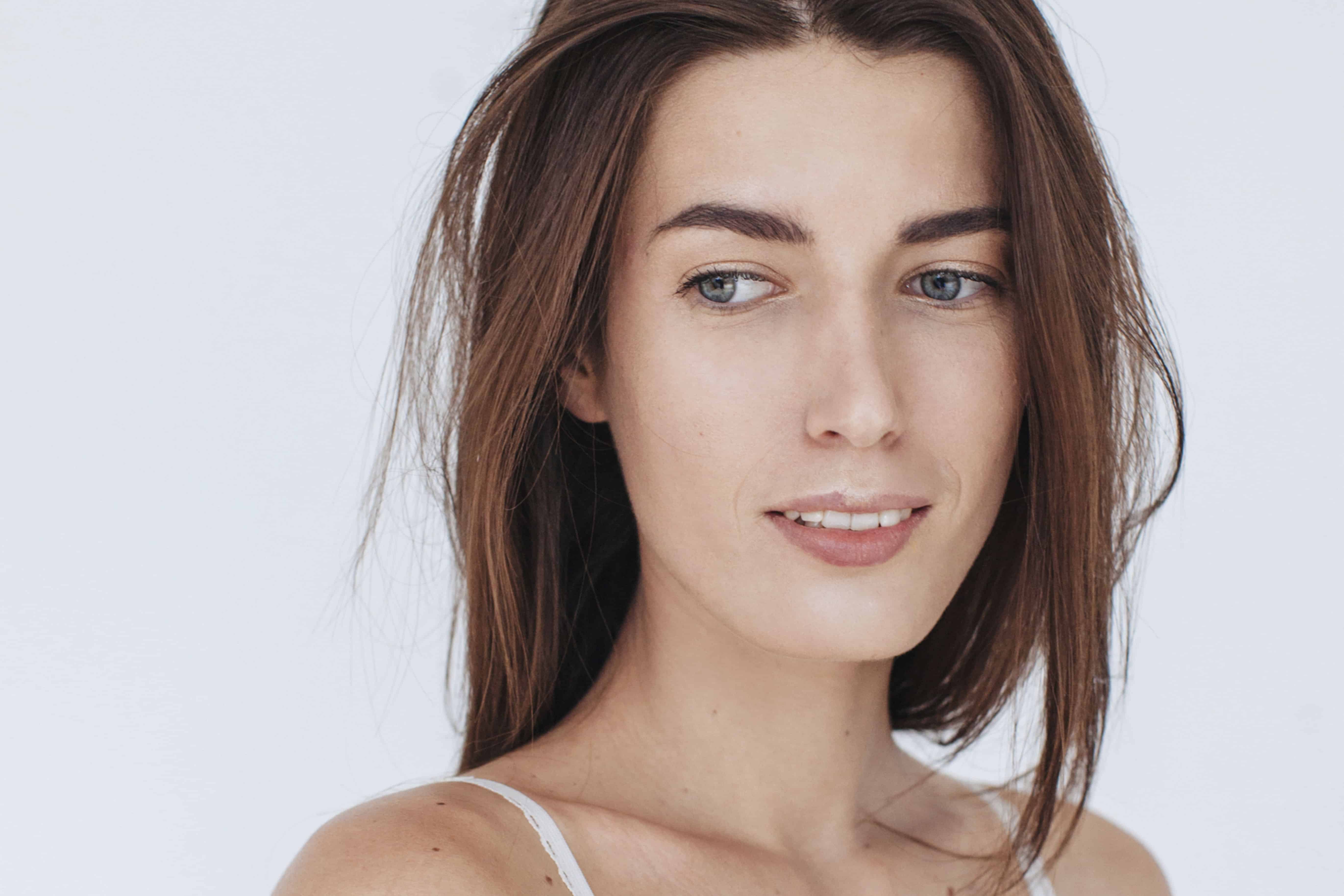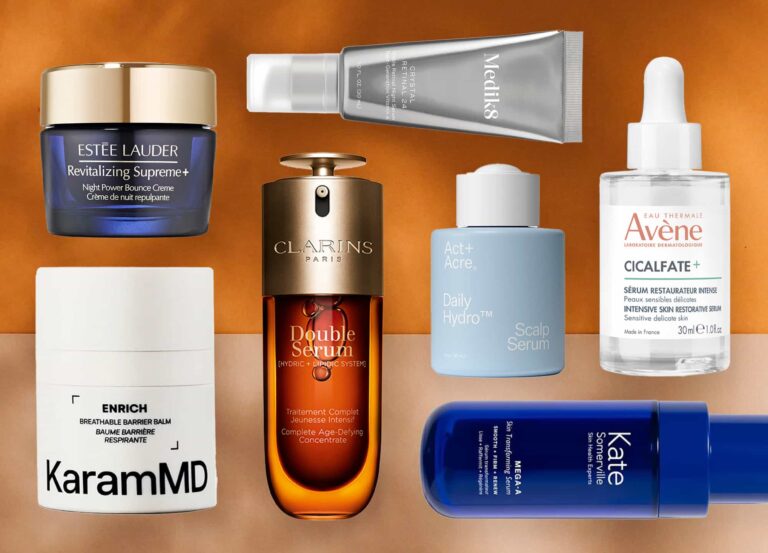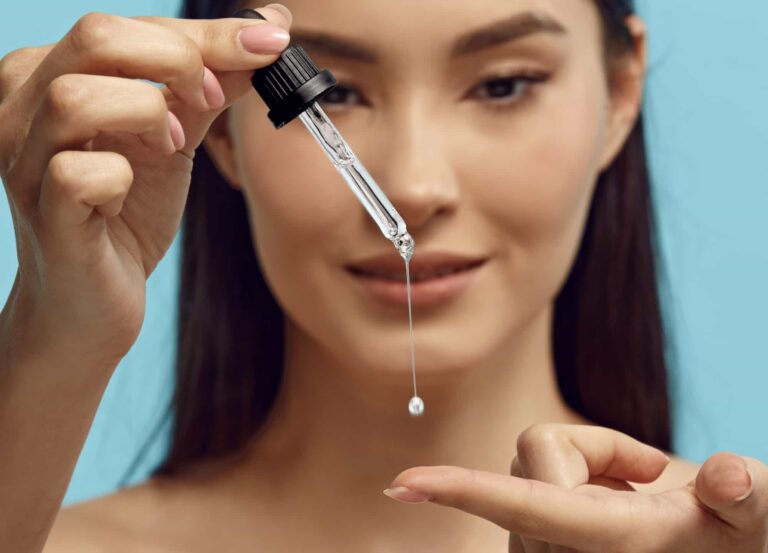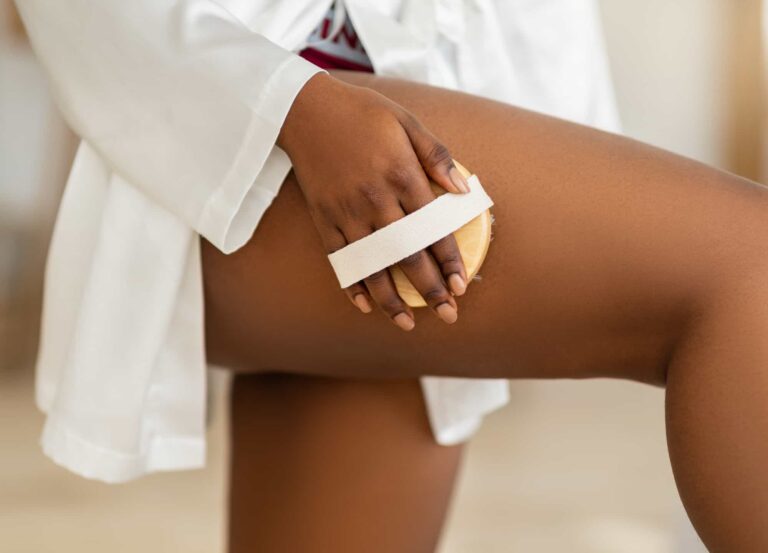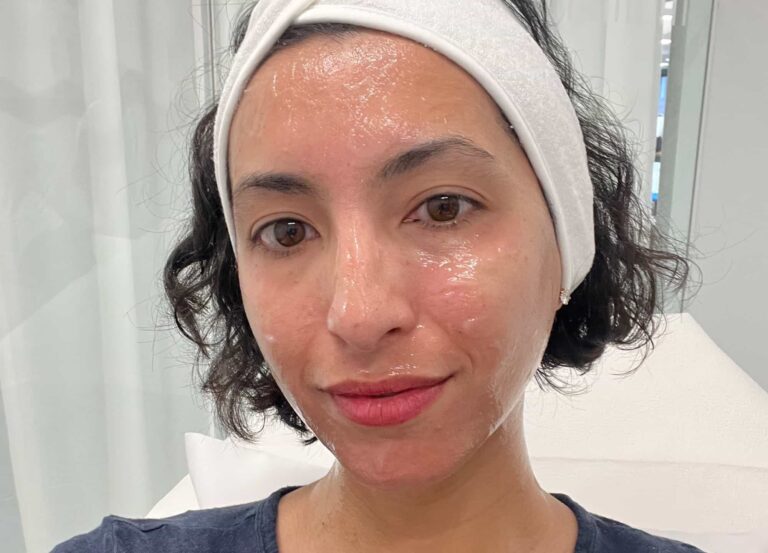We certainly have nothing against a full face of makeup, but there’s something oh-so liberating about going makeup-free. And while makeup isn’t bad for your skin, per se (provided you’re washing it off thoroughly at the end of the day), it turns out that there are some legit upsides to going bare-faced. Ahead, Dr. Kristin Baird, a board-certified dermatologist in Longmont, Colorado, weighs in on the benefits of not wearing makeup and how long you need to forgo your makeup routine in order to see said benefits, and shares what to use on your skin in the meantime.
Does not wearing makeup help your skin?
Yes, but you won’t notice a difference overnight. While a day or a week of no makeup can provide some benefits to the skin, a month is what’s really necessary for improvements you can see. “Going without makeup [for a few days] gives your skin a chance to breathe,” says Dr. Baird. “Going without makeup for a month, however, will allow the natural skin cell cycle to happen without interruption from unnecessary ingredients in makeup products.” Skin cells naturally shed approximately every 28 to 40 days and are then replaced on the top of your skin, the surface layer known as the epidermis. The result? A brighter, healthier complexion, as well as fewer clogged pores and potentially even less blackheads, pimples, and breakouts.
The longer your skin goes without makeup, the better it will be able to stabilize sebum or oil production, hydration levels, and its natural mechanism for exfoliating dead skin cells. Skipping makeup also allows people to streamline their skin-care routine and reduce more aggressive cleansing techniques that could have been stripping the skin barrier of its natural oils, resulting in dryness. Your skin can begin to heal itself during this time period.
There’s also the fact that makeup (and grimy makeup brushes) can be a veritable breeding ground for bacteria. (Yes, even though most makeup products contain preservatives for this very reason.) Keeping your brushes clean and regularly replacing your products—particularly those used around the eyes, such as mascara, eyeliner, and eyeshadow—can reduce the risk of skin and eye infections. Still, wearing less makeup means there will inevitably be less bacteria on the skin. Makeup can also increase the likelihood for allergic reactions, particularly if your skin is more sensitive in general.
What can you do during a month of no makeup to improve your skin?
Just because you’ve stopped wearing makeup doesn’t mean you should hit pause on your dedicated skin-care routine too. “Cleanse and hydrate every day,” says Dr. Baird. “Have fun with it. Use a mask one to two times per week, put cucumber on your eyes, and give yourself an at-home spa experience.”
Dr. Baird advises that you continue to wash your face morning and night because, even though you‘re not putting layers of concealer or bronzer or highlighter on your face, your skin is still exposed to dirt, grease, and free radicals in the air. An antioxidant serum, moisturizer, and sunscreen are also still paramount for daytime. “I recommend starting the morning by cleansing, applying vitamin C, a moisturizer, and then SPF 30,” she says. In the evening, use your cleanser again, exfoliate one to two times per week, use a retinoid as tolerated, and apply moisturizer.
This is also a great time to do at-home skin checks. “Have a loved one help you by checking your back, neck, and scalp for any new moles or discolorations,” explains Dr. Baird. “If you notice any concerning changes, call a dermatologist to schedule a virtual consultation.”
Related: The 4 Biggest Mistakes People Make During an At-Home Facial
What topical skin-care products do you recommend using while you go makeup-free?
“My holy grail skin-care product is DefenAge 24/7 Barrier Balance Cream ($127),” says Dr. Baird. “[This product] is unique in that it utilizes exclusive peptides called Age-Repair Defensins to stimulate stem cells in hair follicles to create new skin.” It’s also good for sensitive skin types since there are no harsh ingredients in the formula, and there’s a fragrance-free version available, as well.
Dr. Baird also loves using a face mask once or twice a week, adding that her personal favorite is the Masktini Metal Head Gold Brightening Mask ($65). “The vitamin C, pomegranate extract, and sunflower oil help to repair damage on a cellular level while the natural pigments give my skin a healthy, golden glow,” she says.
How to stop wearing makeup
If you’re used to rocking a full-on, dramatic makeup look every day, it can admittedly be hard to go cold turkey. Rather than doing a complete 180, start by swapping out heavier formulas—think full-coverage foundations—for lighter versions, such as tinted moisturizers. You can also try cutting out one or two makeup products per day until you’re completely bare-faced (with the exception of sunscreen, of course).







